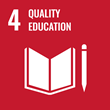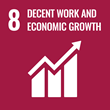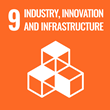Project information
Networks of Dissent: Computational Modelling of Dissident and Inquisitorial Cultures in Medieval Europe
(DISSINET)

- Project Identification
- 101000442
- Project Period
- 9/2021 - 8/2026
- Investor / Pogramme / Project type
-
European Union
- Horizon 2020
- ERC (Excellent Science)
- MU Faculty or unit
-
Faculty of Arts
- prof. PhDr. David Zbíral, Ph.D.
- Stanisław Leon Banach, MA
- Zoltán Brys, MA
- Larissa de Freitas Lyth, M.A.
- José Luis Estévez Navarro, M.Sc., M.A.
- Mgr. Tomáš Hampejs, Ph.D.
- Gideon Kotzé, PhD
- Katia Riccardo, MA
- Davor Salihović, Doctor of Philosophy
- Robert Laurence John Shaw, Doctor of Philosophy
- Kaarel Sikk, M.A., Docteur en Géohraphie
- Katalin Suba, MA
This project will deliver a major breakthrough in the understanding of the social and spatial aspects of dissident religious cultures and their repression in medieval Europe. Our approach combines the close reading of inquisitorial trial records that cover more than 20,000 individuals from the 13th to 16th centuries, the modelling of these texts in a richly structured database, and computational techniques well-adapted to uncover hitherto undetected and historically significant patterns within these sources: social network analysis, geographic information science, and quantitative text analysis. Retaining qualitative as well as quantitative detail, we will use these approaches to address major historical and theoretical questions concerning the nature of dissident religious cultures in medieval Europe, their social microstructure and spatiality, their specifics as well as general characteristics, inquisitorial records and procedures, and the interaction and information flow between inquisitors and deponents. The project will also open up a significant new dimension in the conversation between history, the social sciences, and the digital humanities. On the theoretical level, we will target the bottom-up emergence of larger social phenomena such as authority, collective action and shared religious culture from local interactions between particular actors. On the methodological level, we propose a novel way for storing and retrieving the complex and often fuzzy data derived from challenging historical sources, as well as a largely unprecedented use of computational modelling to analyse the detail they contain. We will thereby provide the research community with a coherent and powerful digital toolkit for historical research into complex human phenomena, one that unlocks otherwise inaccessible insights on the societies of the past through computational techniques and that simultaneously puts source-critical questions at the heart of analysis.
Sustainable Development Goals
Masaryk University is committed to the UN Sustainable Development Goals, which aim to improve the conditions and quality of life on our planet by 2030.
Publications
Total number of publications: 55
2024
-
Toponymic surnames and the spatiality of heresy prosecutions : Peter Seila’s register of sentences from the Quercy region (Languedoc), 1241–1242
Humanities and Social Sciences Communications, year: 2024, volume: 11, edition: February 2024, DOI
-
Tracking the development of derogatory connotations in hate speech against Christian non-conformism in 11th- to12th-century Europe through hypergraphs
Year: 2024, type: Appeared in Conference without Proceedings
-
Women more likely to be incriminated in a medieval inquisition : results from a Dynamic Network Actor Model on data from the Bologna inquisition register, 1291–1310
Year: 2024, type: Appeared in Conference without Proceedings
2023
-
A dependency-driven workflow for analyzing the agency of men and women in a corpus of historical trial documents
Year: 2023, type: Appeared in Conference without Proceedings
-
A Geographic Perspective on Peter Seila's Inquisition in Quercy, 1241-2
Year: 2023, type: Appeared in Conference without Proceedings
-
A Network Analysis of Incriminations in the Inquisition Register of Bologna (1291-1310)
Year: 2023, type: Appeared in Conference without Proceedings
-
Ad extorquendum veritatem : The Situational Production of ‘Truth’ in the Interaction between Inquisitorial and Defendant Agencies at Trial, Giaveno, 1335
Year: 2023, type: Appeared in Conference without Proceedings
-
Behind closed doors: What was there to fear from an inquisition? For the inquisitors, quite a lot
Year: 2023, type: Popularization text
-
Beyond connected dots: The future of network analysis in medieval studies
Year: 2023, type: Requested lectures
-
Computer-Assisted Semantic Text Modelling (CASTEMO) and the InkVisitor Environment : From Sentences in a Source to Statements in a Database
Year: 2023, type: Appeared in Conference without Proceedings


